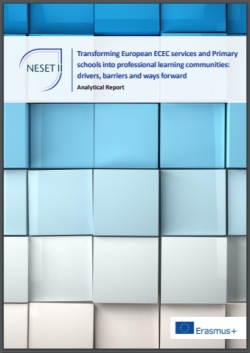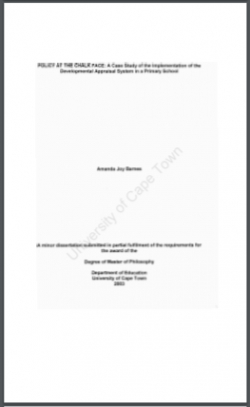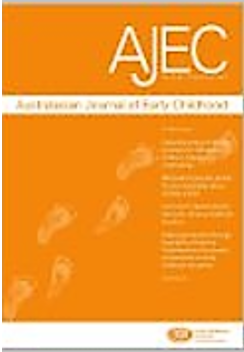Transforming European ECEC services and primary schools into professional learning communities : NESET II report

Buy online ($)
Type
E-Book
Authors
ISBN 13
9789279700811
Category
ECCE, Foundation
[ Browse Items ]
Publication Year
2017
Publisher
Publications Office of the European Union, Luxembourg
URL
[ private ]
Pages
73 p.
Subject
Early childhood care and education (ECCE), Preschool education, Primary education, Child care, Education policy, Knowledge management, Learning, Nursery school, Report, School environment, Teachers, Teacher training, Teamwork
Tags
Abstract
‘Researchers and international organizations broadly agree that the quality of early childhood education and care (ECEC), and of schools, depends on well-educated and competent staff (OECD, 2006; UNICEF, 2008; Milotay, 2016). The contemporary educating/teaching profession has become incredibly complex (European Commission, 2011a) prompting calls for stronger support of ECEC and school staff, which could be included in both initial education and continuous professional development (CPD). The complex multi-diverse societies in which we live, make it indeed impossible today to find standardized solutions for all families/children. Negotiation and reflection are then essential competences to be achieved by practitioners/teachers in ECEC services and schools in order to contextualize pedagogical practice and adapt it to the diversity of children and families. However, these competences are not prioritised by traditional forms of CPD (for example, seminars or top-down approaches). Therefore the latter need to be integrated with additional forms of CPD that focus on the active and democratic participation of staff. Professional Learning Communities (PLCs) are a valuable answer in this direction (see 28). PLCs can be described as ‘a group of people sharing and critically interrogating their practice in an on-going, reflective, collaborative, inclusive, learning-oriented, growth-promoting way’ (Stoll et al., 2006, p. 223). The goal is not ‘being a professional learning community’, but improving wellbeing and learning for children and families (Ibidem). Competent systems are necessary to create and maintain PLCs. The latter require a multilevel network of competences, structural conditions, engagement, and awareness. Many definitions have been offered of what a professional learning community is or ought to be, with the risk of losing its true meaning (DuFour, 2004). This report seeks to correct this gap, by: 1) providing a framework to explain the need for PLCs today (see 20); 2) offering a clear definition of the essential criteria that define a PLC, with concrete examples from several European countries (see 28); and 3) providing four in-depth case studies—from Belgium (Flanders), Croatia, Italy and Slovenia—which illustrate different ways of establishing and sustaining PLCs (see 38). The study ends with specific conclusions and recommendations for policymakers in Member States. It should be noted that the report focuses on services and schools for 0 to 12 years old children. However, the key concepts and conclusions could also be readapted for secondary school.’ [Executive Summary]
Description
Report
Number of Copies
1
| Library | Accession No | Call No | Copy No | Edition | Location | Availability |
|---|---|---|---|---|---|---|
| Main | 730 | 1 | Yes |


